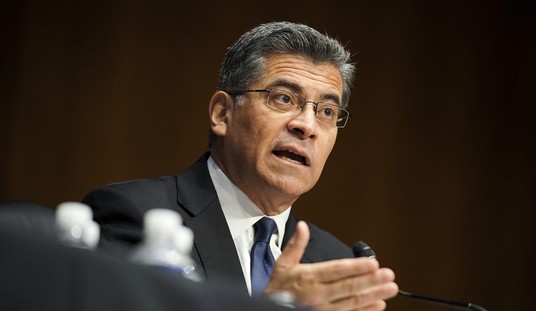Editor's Note: The following is an excerpt from The Unanswered Letter: One Holocaust Family’s Desperate Plea for Help by award-winning investigative journalist, Faris Cassell. It tells the story of her journey across the world to discover the fate of the Berger family. Did they escape? Are there any living descendants? "The Unanswered Letter" is available in bookstores everywhere on September 1, 2020 from Regnery History.
I was the third “Madam” to read this letter, miles and decades away from the world of the writer and the intended recipient. I skipped to the signature: “Yours Faithfully, Alfred Berger.” Feeling the crinkled yellowed sheets, I thought how improbable this was. Alfred Berger could not have imagined that his missive would find its way into my hands more than a half century after he wrote it.
“You are surely informed about the situation of all Jews in Central Europe and this letter will not astonish you. . . . By pure chance I got your address. . . . I beg you instantly to send us/ for me and my wife/ an affidavit. . . .”
The California Bergers were not family, yet the writer had not bothered with any prelude here; there was no polite dance of greetings. He began with a quick explanation, then leapt to a brazen request: he hoped to immigrate to America and needed an affidavit of support from an American citizen—so he had approached a complete stranger.
Despite his urgency, Alfred Berger was purposely vague about his “situation.” I reasoned that he was avoiding censors and the dire repercussions for anyone careless enough to criticize Nazis. In reality, Mrs. Clarence Berger may not have been informed about the crisis for Jews in Germany and Austria. Accounts of Nazi persecution had appeared in newspapers, in movie newsreels, and on radio around the world for several years, but that news vied for Americans’ attention with issues closer to home: still dire economic problems and the threat of a new war that Americans—remembering the horror of World War I’s carnage—were reluctant to face.
Recommended
Today Alfred Berger’s “situation” is clear. His cautious term referred to the Nazi terror that marked the beginning of the Holocaust.
Germany had overrun Austria in March 1938, the year before Alfred wrote his letter. In one astonishing day, Austria, rich in history and culture, was transformed into a subservient district of the German Third Reich. Even now, nearly a century later, neither historians nor Austrians can agree on an adequate term for that event. Invasion, territorial grab, coup, revolution—it was all of these, but the emotionally debated history is still known by the name Hitler gave it: Anschluss, union. On that day, Alfred Berger and his wife lost all their rights and freedom as Vienna descended into a nightmare of hatred, greed, and cruelty.
The late summer sun was probably shining brightly in Los Angeles when Mrs. Clarence Berger reached into her front porch mailbox and pulled out this letter, just days before Nazi Germany stormed into Poland and ignited World War II.
In his letter, Alfred carefully explained to Mrs. Berger that he was writing on the chance they were related. He promised that even if they were not, he and his wife did not need financial support. They wished only to follow their daughter, a piano teacher, and her husband, a tailor, who would immigrate to the United States soon. Near the end of the letter, his restraint crumbled: “We are seized with fright. . . . I beg you . . . help us . . . it is our last and only hope.”
Like most people, I knew a little about the Holocaust, its cruelty, and the millions of Jews and others lost. Here was a piece of that event, a plea from one human being to another: “help us.”
The soup was boiling. I turned it to simmer and returned to the letter. I asked Sidney if Margaret had told him anything more. Did her family help those besieged Jews? Did they know what happened to the Viennese Bergers? He shook his head.
I picked up Alfred’s second sheet, a brief family chronology showing that he was 62 years old, born in Vienna, and a “merchandman.” His wife Hedwig was 12 years younger—quite a difference. He had listed her skills—“dressmaker, seamstress, all householdworks, cooking”— emphasizing her willingness to work also. The Viennese Bergers had been ordinary folks. I noticed that that they could not list any citizenship: they were subjects of Germany. The term was chilling. Reich laws had robbed Alfred and Hedwig of their very nationality—and the protections of citizenship. In advance of any clear plan for a “final solution,” Germany had already begun paving the road to death. I read on. Their parents had been born in the former Austro-Hungarian Empire in Pisely, Trest, Jglau. This plea must have felt distant and otherworldly to the Los Angeles Bergers. Would most Americans have heard of those places? I had not. How is Jglau even pronounced? Alfred Berger’s letter probably astonished Mrs. Clarence Berger. It astonished me.
Sidney and I looked at each other without speaking, at a loss for what to say. The thin paper crackled between my fingers. Despite the decades that had passed since the letter was written, I felt that I held lives in my hands, suspended in these lines: the couple carefully identified, the terror palpable. Now, more than a half century later, with hindsight, the danger and the terror that Alfred Berger avoided describing is crystal clear. But what had happened to him and his family? The letter offered no resolution.
Had there been an answer to the plea that reached across the years? I reflected that I regularly tossed out emotional requests for help, from scammers around the world and legitimate charitable organizations. But this letter had come directly from the hands of a man fighting for his life and his family. What would I have done if I had received it? I wasn’t sure. Alfred Berger’s request was large. And yet I did grasp that if Sidney and I had lived at that time in Vienna our family, too, would have been running for our lives.
I pressed Sidney once more: Did Margaret say anything else? Had he thought what to do with the letter? He shrugged, his half-smile gone.
It was late. I set the letter on the kitchen desk and returned to the stove, but the letter had already taken hold of my heart. I was transfixed, wanting to know more. What had happened to Alfred Berger’s family those many years ago?

























Join the conversation as a VIP Member